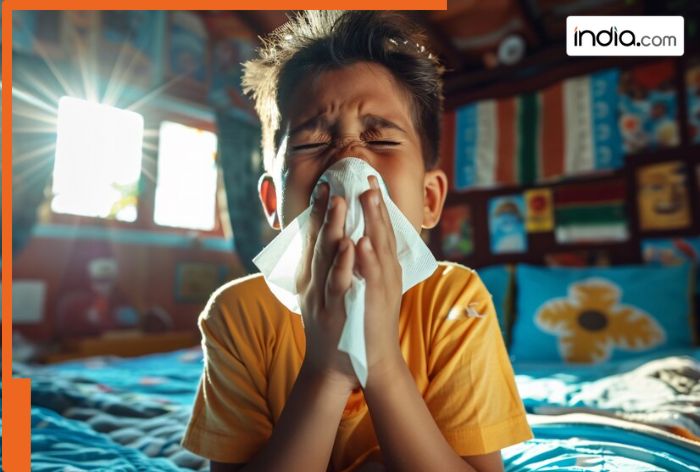Cases of HMPV have been reported in India and have been detected mainly in children. Read on to learn the symptoms and preventive measures to keep children safe.
The human metapneumovirus or HMPV has caused a global panic situation. A total of five cases have been reported in India. This globally recognized respiratory virus gained traction after several videos of overcrowded hospitals in China swept the internet. This virus is not unknown, it has been present in the data since 2001. Children are at great risk of becoming infected with HMPV. To prevent the contraction and spread of the disease, the need of the hour is to take preventive measures and be aware of the risk and symptoms.
HMPV cases in India
Five babies tested positive for human metapneumovirus in Karnataka, Tamil Nadu and Gujarat on Monday, the first reported cases of the virus in India. The Indian Council of Medical Research (ICMR) detected two cases in Karnataka through routine surveillance of multiple respiratory viral pathogens, reports PTI.
A three-month-old girl and an eight-month-old boy, both with a history of bronchopneumonia, were diagnosed with HMPV after being admitted to hospital. In neighboring Tamil Nadu, two more children tested positive for the virus. The fifth case was reported in Ahmedabad, Gujarat, in a two-month-old child. According to reports from the respective states, all the babies are stable for now and are being monitored.
HMPV Virus in India: 8 Preventive Measures to Keep Children Safe
In the absence of specific treatments or vaccines for HMPV, prevention is imperative:
- Good hygiene: It is important that parents and schools emphasize and explain the need to practice good hygiene. Children should wash their hands with soap for at least 20 seconds, especially after sneezing, coughing, or touching foreign objects. Have sanitizer on hand.
- Avoid touching your face: You should avoid touching your eyes, face, and nose frequently to prevent the spread of germs.
- Clean environment: To reduce the risk of contracting any type of virus, keeping your environment clean is as important as personal hygiene. Dirty places risk becoming breeding grounds for bacteria, viruses, pathogens, etc.
- Healthy diet: Make sure you eat a nutrient-balanced diet. Vitamin C is essential to boost immunity. Therefore, focus on foods that can help strengthen immunity so that you can fight off invading bacteria.
- Mask: Try to cover your face with a mask when you go out in crowded places.
- Stay Hydrated: Keep your body healthy and energized by drinking enough water and fluids. The winter season can cause a decrease in water consumption. Helps eliminate toxins better.
- Social distancing and self-isolation: To prevent transmission, it is essential to maintain a safe distance from the infected person. The infected person should isolate themselves and avoid leaving home to avoid infecting the vulnerable population.
- Adequate ventilation: Healthy ventilation helps reduce airborne virus concentrations.
All about the HMPV virus
Symptoms of HMPV
- Cough
- Fever
- Nasal congestion
- Sore throat
- Difficulty breathing
In most cases, these symptoms are mild and disappear within one to two weeks. However, in more severe cases, especially in vulnerable people, HMPV can cause bronchitis, pneumonia, asthma attacks, etc. The severity and duration of symptoms depends on the person’s age, general health, and immune status.
HMPV is more common in cold climates, several authorities have reported. There has been nothing “unusual,” authorities say. It is similar to influenza or respiratory syncytial virus (RSV). It spreads primarily through droplets, aerosols, or by touching an infected person or object.
“I don’t think we should press the panic button, because HMPV is not a new virus… HMPV is an existing virus and a certain percentage of people are affected by it and it is not something new,” said the Minister of Karnataka Health, Dinesh. Gundu Rao said.
Currently, different states, including Delhi, have issued advisories for hospitals to remain fully prepared to manage a possible surge.
